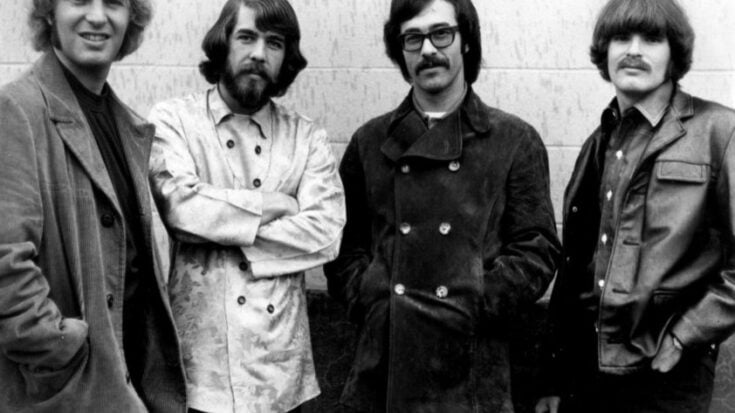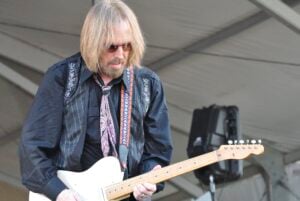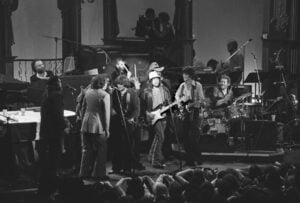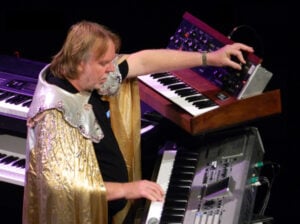4 Classic Rock Anthems Named After U.S. States Their Bands Weren’t Even From

Fantasy Records, Public domain, via Wikimedia Commons.
When Rock Songs Celebrate the Wrong Hometowns
Rock music has always had a way of capturing the spirit of a place — the feel of its streets, its people, and its rhythm. Some songs make listeners believe the artists must have lived there, drawing vivid pictures of swamps, small towns, or city lights. But sometimes, those songs weren’t written by locals at all.
In several cases, classic rock bands wrote powerful anthems named after U.S. states or cities they had never called home. Yet, the songs became so iconic that they’re now tied forever to those places. Here are four memorable examples of rock hits that sound like hometown tributes, even though their creators came from somewhere else entirely.
“Mississippi Queen” by Mountain
Few songs have the raw grit and swagger of Mountain’s 1970 hit “Mississippi Queen.” With its driving cowbell and fuzzed-out guitar riff, it sounds unmistakably Southern—except that none of the band members were from Mississippi. In fact, Mountain’s core lineup came from New York City, more than 1,200 miles from Vicksburg, the Mississippi city mentioned in the song.
Even the track’s co-writer, David Rea, was born in Akron, Ohio. Despite the distance, “Mississippi Queen” became one of rock’s most famous state-inspired anthems. Its rough tone and blues-infused energy gave it the same flavor as the southern rock bands that defined the early 1970s, solidifying its association with the Deep South.
“Mary Jane’s Last Dance” by Tom Petty
Tom Petty’s 1993 hit “Mary Jane’s Last Dance” opens with a vivid image of a girl who “grew up tall and grew up right with them Indiana boys on them Indiana nights.” That single line was enough for many fans to link the song permanently with the state of Indiana—even though Petty himself hailed from Gainesville, Florida.
Interestingly, the song’s working title was “Indiana Girl.” Petty later revealed that while recording, the phrasing didn’t fit the chorus naturally. “It was hard to sing, hey, Indiana girl,” he once said, which led him to rewrite the line into the now-familiar “last dance with Mary Jane.” Though never intended as a love letter to the Hoosier State, it became just that for Midwestern rock fans.
“Born on the Bayou” by Creedence Clearwater Revival
When Creedence Clearwater Revival released Bayou Country in 1969, they helped define what became known as “swamp rock”—a sound inspired by the steamy marshlands of Louisiana and the Deep South. But frontman John Fogerty wasn’t from Louisiana at all; he grew up in California.
In Finding Fogerty, the singer explained how he imagined the song rather than lived it. “I was trying to be a pure writer, no guitar in hand, visualizing and looking at the bare walls of my apartment,” he said. Fogerty added that “Born on the Bayou” came from “a mythical childhood and a heat-filled time, the Fourth of July. I put it in the swamp where, of course, I had never lived.”
“Hollywood Nights” by Bob Seger
Bob Seger’s 1978 rocker “Hollywood Nights” paints a vivid picture of the bright lights and chaos of Los Angeles, making it easy to associate the Michigan-born singer with California. But Seger made sure listeners knew the narrator was a Midwestern boy on his own, swept up by the allure of Hollywood.
“It’s very seldom that I’m driving in a car and something rolls into my head,” Seger told Classic Rock. “But that song did. I was out in Los Angeles, and I was just beginning to record Stranger in Town. I had a house out in the Hollywood Hills, and I could see the city from my house.” Even as a temporary visitor, Seger captured the restless spirit of California nightlife like he’d lived there his whole life.
















